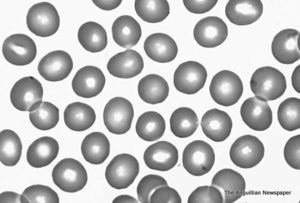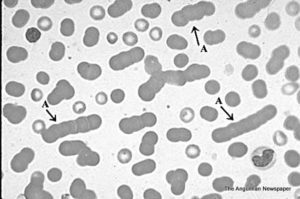
The carbohydrate/sugar balance is one of the most critical balances the body must maintain. Carbohydrates is one of the brain main foods, the other is oxygen. An imbalance of carbohydrate/sugar can lead to Hypoglycemia or diabetes. This is an indication that all is not well with the body’s carbohydrate/sugar balancing mechanism. Homeostasis, a self-regulating process by which all biological systems maintain an internal stability, while adjusting to conditions that benefit & support survival. without which we could not survive.
There is a tendency to label all carbohydrates/sugars as being the same. However, there are differences. Complex carbohydrates from whole grains, vegetables, fruits, beans, legumes, nuts & seeds have their full complement of nutrients, especially the digestible & indigestible fibre. Depending on the particular food, some nutrient content will be more in others. Eating more of these foods will only benefit us & they are a much better source of energy. Without complex carbohydrates we can suffer from any number of disease conditions. On the other hand, refined/processed/simple carbohydrates only provide empty calories. They are

devoid of nutrients & essentially bring nothing to the nutrient table. Examples include, the refined & processed sugars sucrose i.e. your regular table sugar, high fructose corn syrup & refined grains. A phenomenon that occurs when we consume to much sugary foods is Rouleau. This condition occurs when sugar interacts with our red blood cells. Sugar is a sticky substance, which causes the red blood cells to stick to each other. This is a potentially dangerous condition. It can cause blockages in the smaller, narrowed blood vessel leading to heart attacks, stroke, deep-vein thrombosis & other life threatening conditions.
When the carbohydrate/sugar balancing mechanism is working, the body resorts to burning fat as its fuel/energy source. When this happens ketones are produced, these compounds form & accumulate in the body. The body becomes acidic or a condition called ketoacidosis develops. Ketoacidosis results from uncontrolled diabetes, a combination of ketosis & acidosis.

Insulin works more effectively & efficiently when certain helper enzymes are present in the gut to change carbohydrate/sugar into a form the body can use. This depletion of nutrients result from poor diets, diets high in saturated fats & refined &/or processed foods. When the brain senses an imbalance e.g.a high concentration of sugar in the blood, it sends a signal to the pancreas to release more insulin, to try to restore the balance. If something goes wrong:the resulting condition can be hypoglycaemia, depression or Diabetes. Consuming too much refined sugars can lead to:
? Tiredness, metal fatigue
? Weakness, faintness, dizziness
? Irritability, nervousness, trembling
? Anxiety, depression, forgetfulness,
? Inability to focus, there is confusion, palpitations &/or blackouts.
Insulin is made more sensitive, effective & efficient, when these nutrients are present:
? Chromium, an important trace nutrient, usually destroyed by the processing of food. Chromium also plays an important role in the breaking down carbohydrates, fats & protein.
? Alpha Lipoic Acid, another nutrient produced in every cell, albeit in small amounts, improves Insulin’s sensitivity & treats diabetes..
? Magnesium & Vitamin D: are essential nutrients that also improve the sensitivity to insulin. Low levels of magnesium are common in people with Type 1 & Type 2 diabetics. Magnesium has a strong relationship with insulin & it’s important for the breakdown of carbohydrates
? Other insulin supporting nutrients include: calcium & potassium. Many of these nutrients are either damaged or destroyed by the refining process.
Good food sources of these insulin supporting nutrients include:
? Kelp, dulce, collard & turnip Greens, sardines in water, cheeses, herring/not the smoked kind & other fatty fishes, dried peas, beans, walnuts, sunflower seeds, almonds, raisins, coconut water, fruits, orange juice & celery.
Other good sources are:
? Brewer’s yeast, rye & whole wheat breads/flour, beef round & calf liver…
? Broccoli, spinach, collard greens, chard, dark Green Leafy Vegetables.
? Wheat bran & germ, almonds, cashews & blackstrap molasses, peanuts, chilli powder, shiitake mushrooms, sun-dried tomatoes & soy Sauce,
As the condition persists, the pancreas because of the excess sugar gets anxious, panicky & releases insulin to try to maintain the balance & avert
trouble, sugar levels fall drastically. The adrenal glands try their best to compensate, trying to maintain the balance. It releases its hormone adrenalin to stop the action of insulin. The adrenals become overwhelmed & burn out.
Here are some healthful recommendations:
? Eliminate junk foods, refined/processed/simple sugars, including alcohol, which is another type of sugar
? Eliminate the seven whites e.g. rice, flour, vinegar, pasta, oils, sugar & salt.
? Take regular Exercise, a brisk 30 minute walk, 3x per week &
? Supplements with alpha lipoic acid, manganese gluconate, zinc, vitamin B3 & Chromium Picolinate.
Dr Stan Horne, DNM, PhD Naturopath
264 582 7045 / 784 531 1150








